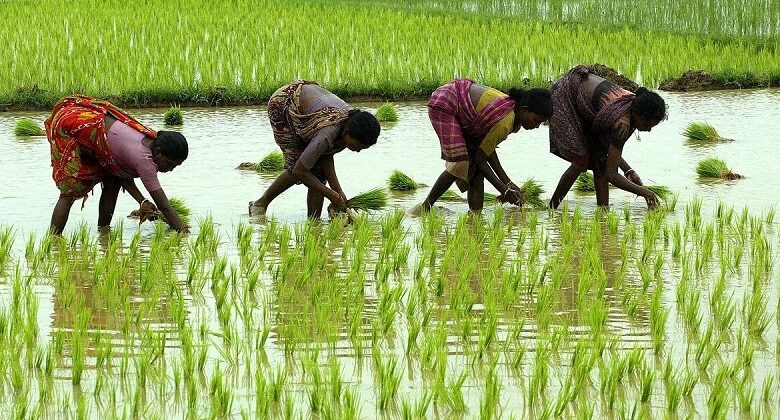Plea For Immediate Removal of Rice Export Ban Essential to Protect Farmers

News Mania Desk/ Agnibeena Ghosh/11th July 2024
In a letter addressed to Honorable Piyush Goyal, the Union Commerce Minister of India, Dharmendra Malik, National Spokesperson of BKU(A), urged the immediate removal of the ban on rice exports. The plea highlights the detrimental impact of the ban on Indian farmers, emphasizing the importance of rice as a key agricultural product that influences global diet, culture, and economy.
On July 20, 2023, an export ban on rice was imposed in an effort to stabilize local prices. However, this decision has inadvertently led to an oversupply in the domestic market, causing prices to plummet and inflicting financial losses on rice farmers. The current scenario threatens to reduce rice sowing in India by 5 percent as farmers may turn to other crops to sustain their income.
Rice cultivation in India typically begins during the rainy months of June and July, with harvesting starting in October. The export ban, if maintained during this critical period, is expected to severely impact farmers’ earnings from the open market. The anticipated production for 2023 stands at 135 million metric tons, while domestic consumption is projected at 109 million metric tons. Historically, over 15 million metric tons of non-Basmati rice have been available for export annually.
As of July 1, 2024, the Food Corporation of India (FCI) holds 50 million metric tons of rice in stock, vastly exceeding the buffer stock requirement of 13.54 million metric tons. The inter-ministerial group is actively exploring strategies to manage these excess stocks. With the arrival of new crops expected in October 2024, the pressure on the Indian government to purchase rice at the Minimum Support Price (MSP) is likely to escalate. Presently, FCI faces storage constraints, necessitating the storage of 17 million metric tons of rice with millers.
The letter underscores the continuous increase in rice production across several Indian states. For instance, Telangana’s rice production surged from 6.67 million metric tons in 2018-19 to 16.4 million metric tons in 2022-23. Bihar also witnessed an increase from 6.3 million metric tons to 7.6 million metric tons, while Andhra Pradesh is expected to have a surplus stock of 4.4 million metric tons by 2023. These figures indicate that India has a significant surplus of rice that can be exported to alleviate the current market pressures.
Given these circumstances, Malik appeals to the Indian government to lift the export ban on rice promptly. He argues that exporting the surplus rice would not only benefit the farmers by stabilizing prices but also contribute positively to the economy.
In conclusion, the call for lifting the rice export ban is presented as a necessary step to protect farmers’ livelihoods and ensure the efficient management of surplus rice stocks. Immediate government action is sought to rectify the adverse effects of the current export restrictions and support the agricultural sector’s sustainability.






